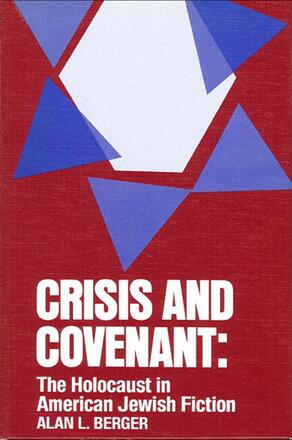
Crisis and Covenant
The Holocaust in American Jewish Fiction
Alternative formats available from:
Description
Explores how Jewish American writers have grappled with the enormity of the Holocaust.
Alan L. Berger teaches in the Department of Religion and directs the interdisciplinary Jewish Studies Program at Syracuse University. His essays on Holocaust fiction and pedagogy, Jewish mysticism, and the sociology of Judaism appear in a variety of places. He has also written study guides for Alinsky's Children, a film project dealing with children of Holocaust survivors.
Reviews
"I am convinced that this book will be an important contribution to the understanding of events and issues that defy understanding. "Much has been written about the theology of the Holocaust, and also about the literature of the Holocaust. What Alan Berger has done is to combine both. Furthermore, he deals more with writers than with concepts, or rather: he deals with concepts through the works of writers. " — Elie Wiesel, Andrew W. Mellon Professor in the Humanities, Boston University
"How have American, Jewish writers of fiction faced the Holocaust in a post-Auschwitz world? In a penetrating critique of Bellow, Ozick, Roth, Nissenson, Malamud, et al. , Alan L. Berger raises this crucial question and examines it against the ancient and modern claims of the Covenant as it has acted within Jewish life and in religious Judaism. What results is a book insightful, thoughtful, carefully crafted, that establishes Berger as a first-rate critic who has fully mastered the fiction and the writers whom he examines. He is also an established Holocaust scholar. The combination provides all students of American fiction with a major new work of high merit. " — Robert W. Ross, University of Minnesota
"This thoughtful and fresh book casts a beam of light in a dark, unexplored literary horizon. It reveals how the central Jewish writers of our time grapple with the awesome, horrifying implications of the Holocaust. Many of these authors—Ozick, Malamud, Nissenson, and Singer, for example—are not usually considered Holocaust writers, but this book breaks beyond the easy categories of theology and literary criticism. Berger skillfully demonstrates here the interweaving of Jewish destiny and meaning with literary and narrative invention. An original, arresting and important work. " — Irving Greenberg, President, National Jewish Resource Center